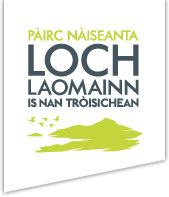
Why make your business greener?
We are passionately committed to supporting changes in response to the Global Climate Emergency.
We are working towards making the National Park a better place to visit, work and live and to continue to work with businesses, visitors and communities to make changes to preserve the natural assets of the National Park and to make a positive contribution to the global Climate Emergency agenda. We therefore aim to support creative solutions in response to the climate emergency with renewed focus and energy.
The National Park Authority, through a collaborative process will continue to drive changes to combat climate change and negative impacts on the natural environment. We hope that through our approach to working closely with businesses in the National Park, our shared ambition to deal with this challenge head on will result in future actions to reduce the environmental impact of business operations and to influence consumer choice throughout all touch points of a visit to the National Park.
But what are the benefits in making your tourism business greener?
Financial Benefits
Many of the objectives outlined in this toolkit are aimed at creating a financial gain for businesses while contributing to the improvement of the environmental impact. Reduced costs and improved efficiencies achieved through waste reduction, travel and energy use can benefit business overhead costs through reduced energy consumption. The business audit provided by Zero Waste Scotland can provide support through:
- Better understanding of energy use in buildings including behaviours of building users and potential technology and fabric measures to improve energy and emission reduction.
- Increased resource efficiency and continued cost savings associated with energy, water and waste
- Support for increased loan funding for carbon reduction projects, reducing capital expenditure and reducing financial risk
- Reduced dependency on fossil fuels and transition to decarbonised electricity and renewable energy generating systems
- Better understanding for staff team of carbon and financial savings and future improvement plans
- Increased external partner and customer engagement, highlighting emission reduction measures
Consumer Behaviour
Climate change and the impact of industry and human activity has become one of the major challenges of our time. This will continue to increase in prominence for consumer decision making as sustainability becomes ever more important in purchasing and travel decision making. Businesses who respond to these changes in customer behaviour, attitudes and expectations will be able to capitalise on the win-win situation; achieving a competitive advantage in the tourism market and making a positive environmental contribution in the process.
Travellers are looking for more ways to reduce their carbon footprint, to offset their emissions created through travel and tourism activity and there is evidence through online searches, that consumers are looking at visiting destinations who have adopted a ‘green’ approach to business operations and have sustainability at the heart of what they do and how they do it. It is vital that we all come together to tackle these issues. This will need the support of all business employees and our visitors to change behaviours and to build sustainability into all activity, services and visitor communications.
Sustainable tourism is an underpinning principle of Scotland’s national tourism strategy. Tourism has the potential to act as an agent for change which can trigger change beyond the sector, influence and interact with communities in its social, economic and environmental impacts. Increasing awareness of sustainability amongst visitors helps reduce emissions from energy consumption, waste generation, water use and travel choices.
What does climate change mean for the National Park?
The impacts of climate change are already affecting the National Park and visible impacts of this have been experienced through increased flooding, wind, rain and storm intensities, there are also hidden impacts such as droughts, biosecurity with the risk of invasive species, and seasonal changes to the food chains for the wildlife of the National Park. The summer of 2018 was the joint hottest ever recorded in the UK, and summer temperatures are expected to increase consistently if the current trajectory of global warming continues. These conditions have detrimental impacts socially and economically and direct consequences for business and transport.
The Scottish Government is determined to stop contributing to climate change within a generation and acted on the advice from the Committee on Climate Change immediately by lodging amendments to the Climate Change (Scotland) Bill to set a legally binding target of net-zero greenhouse gas emissions by 2045 at the latest. The National Park Authority is guided by the Scottish Government’s aim and therefore aim to support businesses to be able to play an important role in contributing to the target.
The National Park Authority has in-house expertise covering a range of specialist areas including aspects of conservation, landscape and rural management, planning, education, marketing and visitor management. The National Park Authority works closely with a range of partner organisations to engage with other areas of expertise to continue to develop innovative ways in which we can address the climate emergency agenda for the benefit of preserving the National Park for future generations. We recognise that the key to addressing this agenda will be best delivered through partnership working and through engaging closely with businesses of the National Park to create an exemplar destination in climate change mitigation.

